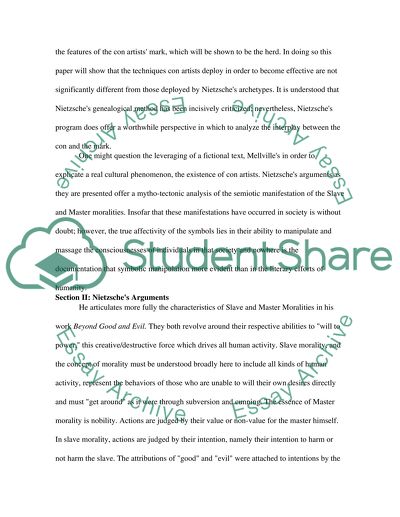Resentment and the Genealogy of Morals Essay Example | Topics and Well Written Essays - 5500 words. Retrieved from https://studentshare.org/miscellaneous/1514365-nietzsche-genealogy-of-morals-relating-to-con-artists
Resentment and the Genealogy of Morals Essay Example | Topics and Well Written Essays - 5500 Words. https://studentshare.org/miscellaneous/1514365-nietzsche-genealogy-of-morals-relating-to-con-artists.


